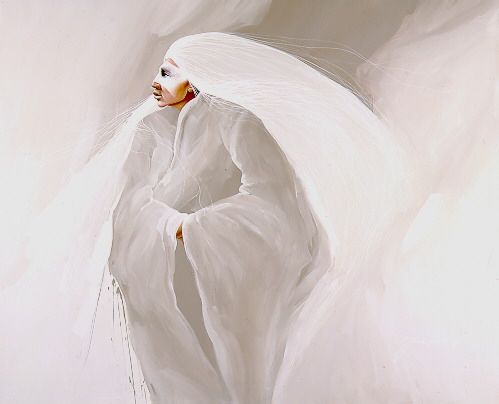By Kirsten Scharnberg
Tribune national correspondent
PRESCOTT, Ariz. -- Albert Laughter kneels near the fire pit in the center of the tepee, arranging his ceremonial arrowheads, bowls and pipes. He lays out the all-important eagle feathers, reverently unwrapping them from an American flag.
The fifth-generation Navajo medicine man has trained most of his life to treat the people of his tribe with the traditional healing methods of Native Americans from this region of the country: powwows, sacred dances, sweat lodges, purification ceremonies, natural herbs.
But these days his job is very different.
Laughter is employed by the federal government. He primarily treats military veterans suffering from the trauma of combat. And the tepee in which he does much of his work sits not on an American Indian reservation but on the grounds of the Bob Stump Veterans Affairs Medical Center in Prescott.
"I guess I'm a true 21st Century medicine man," Laughter said. "They call me on my cell phone to make appointments, and I get much of my work thanks to two modern wars -- Iraq and Afghanistan -- that began at the start of this century.
Native American veterans face unique struggles upon returning home from war, including high rates of post-combat stress. Now a mix of modern and traditional medicine is helping them heal.
"Since World War II, when Navajo Code Talkers became an essential part of the U.S. armed forces, Native Americans have had some of the highest per capita rates of military service of any demographic group in the United States, a trend that has only increased as poverty on reservations has risen and young men and women seek better economic futures.
Unfortunately, Native Americans also have faced some of the biggest difficulties upon returning home from combat. Studies of Native American vets from the Vietnam War era, for example, revealed alarming rates of suicide, drug abuse, alcoholism and homelessness, particularly when they returned from war to remote reservations with little access to mental heath care.
Want to read the whole story? Click here: http://www.chicagotribune.com/news/nationworld/chi-ptsd_04_scharnbergjun04,1,1567532.story?page=1&ctrack=1&cset=true&track=rss
Thursday, June 7, 2007
Subscribe to:
Post Comments (Atom)





No comments:
Post a Comment